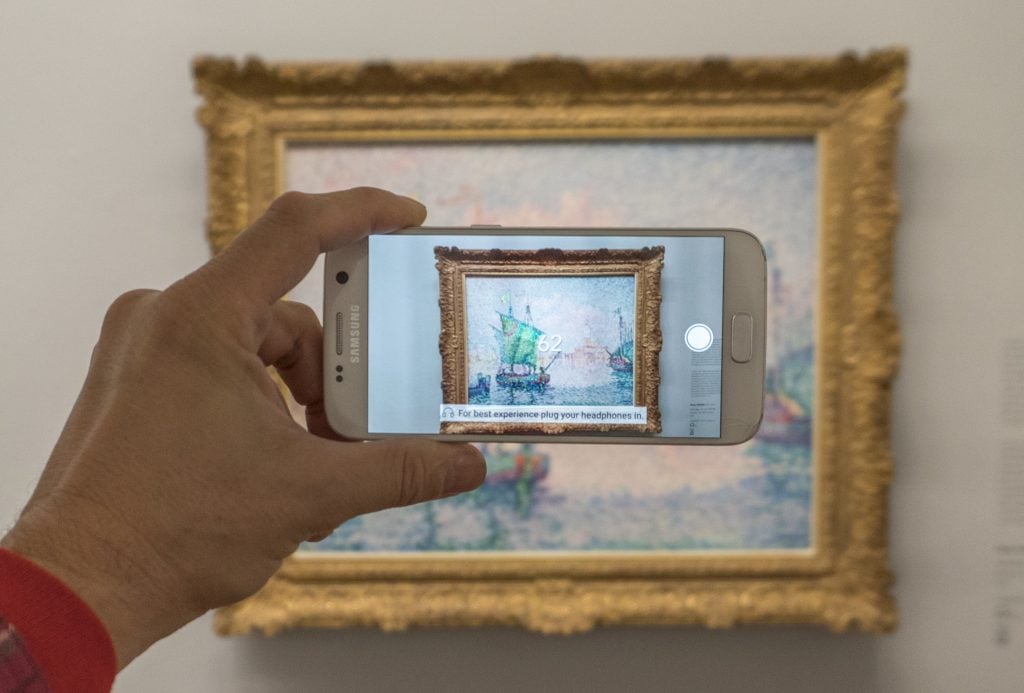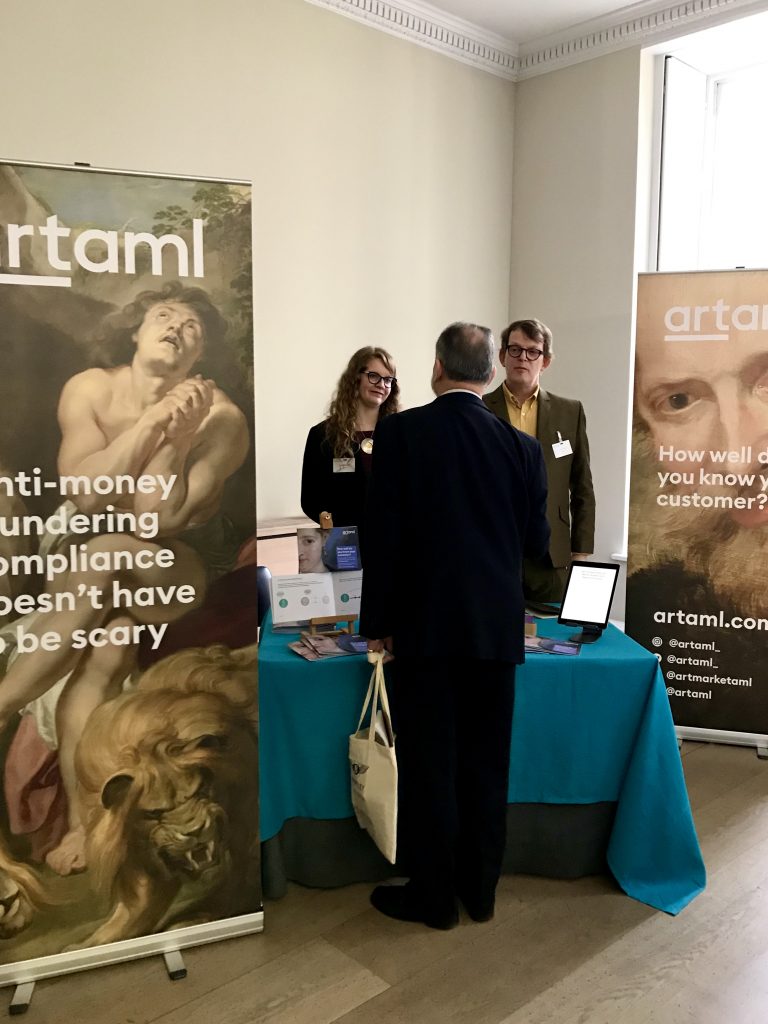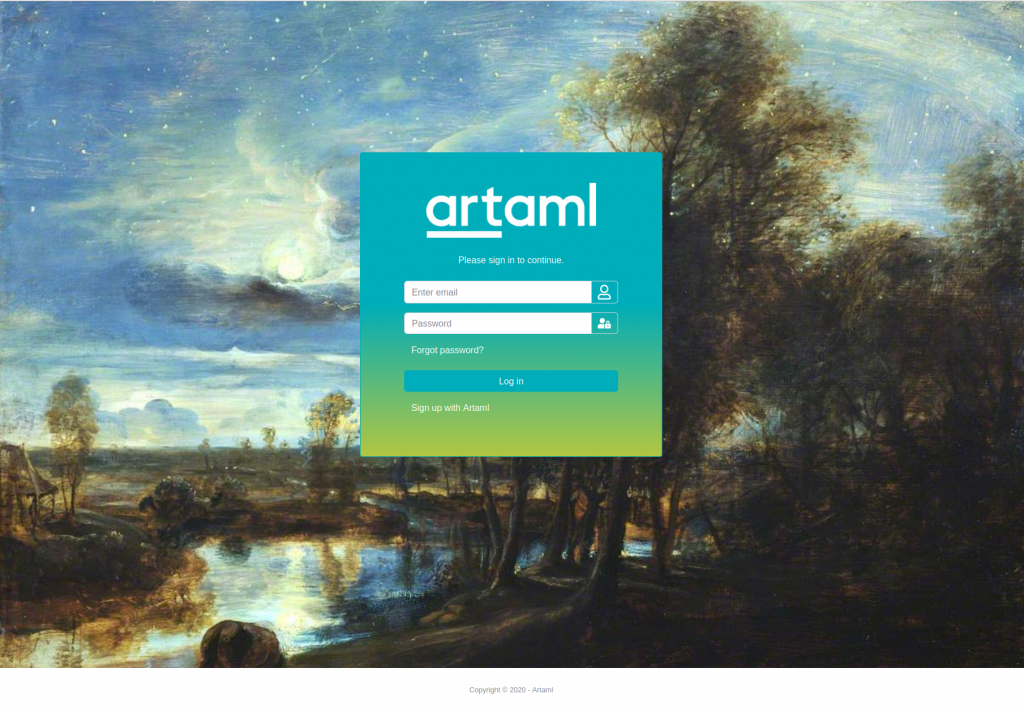Law & Politics
A New App Aims to Help UK Art Dealers Struggling to Comply With the Country’s Confusing New Anti-Money-Laundering Rules
ArtAML guides dealers through due diligence checks on clients.

ArtAML guides dealers through due diligence checks on clients.

Art dealers in the UK were taken aback in January when they found out that new anti-money laundering regulations had taken effect and would transform the way the art market operates. Dealers participating in transactions of €10,000 (£8,500 or $11,000) and above must now register with the government, keep records of due diligence checks on their clients, and report any suspicious transactions—or face jail time.
Since the new rules came into effect, dealers have been grappling to get their heads around the extra administrative work required to become compliant. Enter Susan Mumford, a creative entrepreneur who is building a tech solution for galleries to meet their new obligations without the hassle.
While galleries will still have to appoint an in-house money-laundering reporting officer, Mumford’s platform, ArtAML, will offer dealers a simple all-in-one service that will allow them to verify client identities, check for suspicious activity, and keep secure records, as required by the new law.
With 20 years in the art industry, Mumford knows that many market participants have been reluctant to embrace technology, and she tells Artnet News that the app has been designed with that in mind. “I’ve come across other technology companies that are just in shock with the art market, but I absolutely understand the industry, and that we need to build something that is not frightening,” Mumford says. (Hopefully, however, the extended lockdown has led some in the art world to overcome their technology fears, she says.)

Susan Mumford and Chris King at LAPADA.
Mumford has been working on ArtAML with co-founder Chris King since September 2018, when the possibility of the regulations were first announced. Through a series of step-by-step prompts, dealers can enter in the required information about clients, including photo ID and proof of address, and assess the riskiness of the transaction.
The app lets you scan client names against several databases at once—including checking whether the client is a politically exposed person, has been officially sanctioned by the government, or if the transaction is coming from what is considered a high-risk country. It also helps dealers fulfill the due diligence requirements for secondary-market sales, such as confirming that provenance details are in place.
“The vast majority of transactions will be quick to check,” Mumford says. For most legitimate transactions between private clients buying for themselves and simple companies, the process can be carried out within minutes. Where answers are unsatisfactory or further questions are needed, the platform will raise red flags and instruct the person inputting the information on what to do next, such as assign the gallery’s official money laundering reporting officer to review and approve, or conduct enhanced due diligence.
“Throughout, we are building information to prompt the correct questions, to guide art market participants through the process,” Mumford says. “We understand the market we are dealing with, so we are not going in with the assumption that these people are absolutely proficient with [anti-money laundering].”

ARTaml log-in page. Courtesy of ARTaml.
At the moment, the platform is browser based, but it will eventually also have a mobile app—so dealers can validate an ID and proof of address, and safely store that information, by scanning them on their phones at an art fair.
The platform is entering beta-testing this week among a focus group of galleries ahead of a full launch, which Mumford hopes can happen before the beginning of the fall art season. The beta application portal opens July 3 online and is free of charge for up to 25 galleries to participate.
In the meantime, galleries can register online, as well as partake in some of the online education sessions ArtAML is offering, such as their “AML and the Art Market” Instagram lives on Mondays at 5 p.m. (UK time). The app will be a subscription service that includes the ability to select however many users are required, and however many AML checks are needed per month. Prices have been designed to suit the budget of varying sizes of art businesses and thus start at under £100 ($123) per month.
Galleries have until January 10 next year to officially register as an art market participant with HM Revenue and Customs, but until then Mumford says they should still be making a good faith effort to become compliant, which includes educating themselves and their staff about the new regulations. “My take on this is that this might be legislation that we have never encountered before, but the art industry is good at thinking, we are good with abstract concepts, so actually I think once people get their heads around this, they’ll get it,” Mumford says.
The regulations are part of a wider international move to crack down on money laundering within the art market, and may soon become the norm. The new rules that affect the UK are part of an EU-wide piece of legislation, and in the US, another bill is making its way through Capitol Hill that will introduce anti-money laundering legislation there. Mumford says that they are making inroads to expand to the US as well.